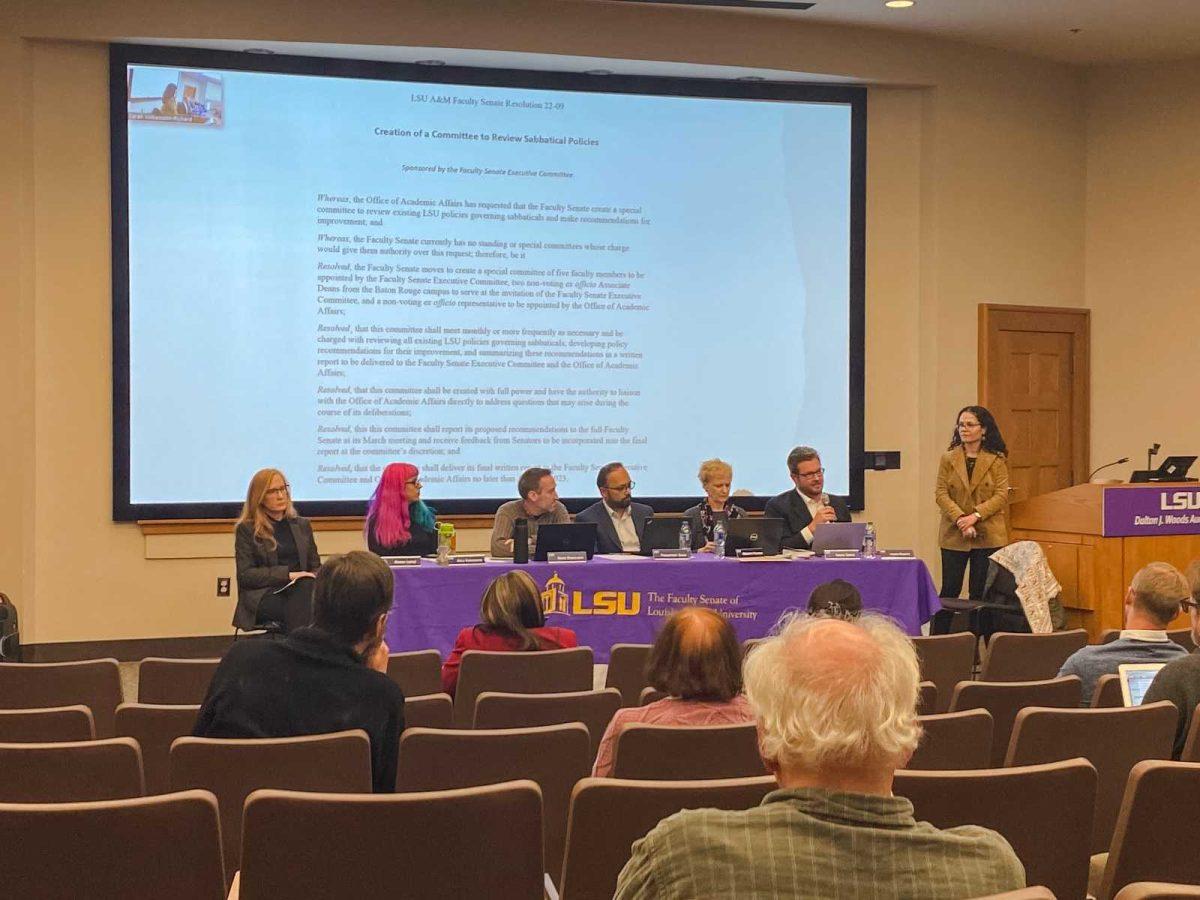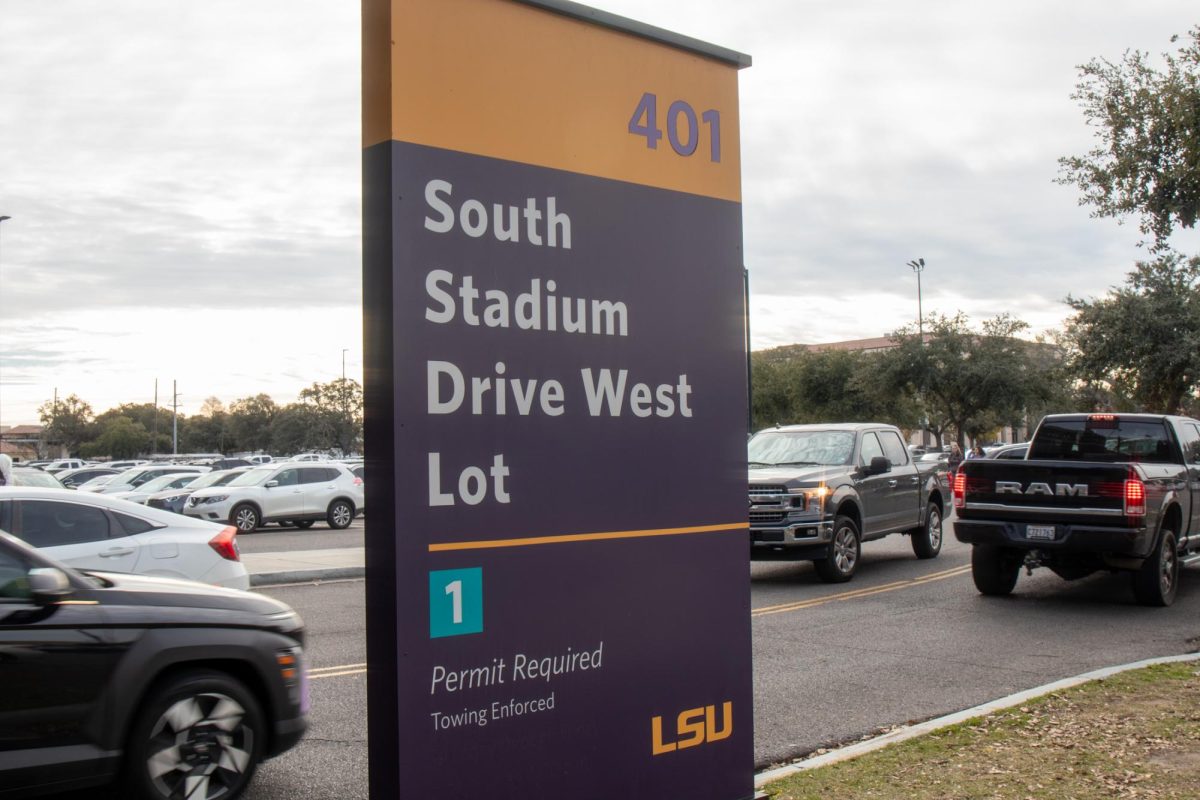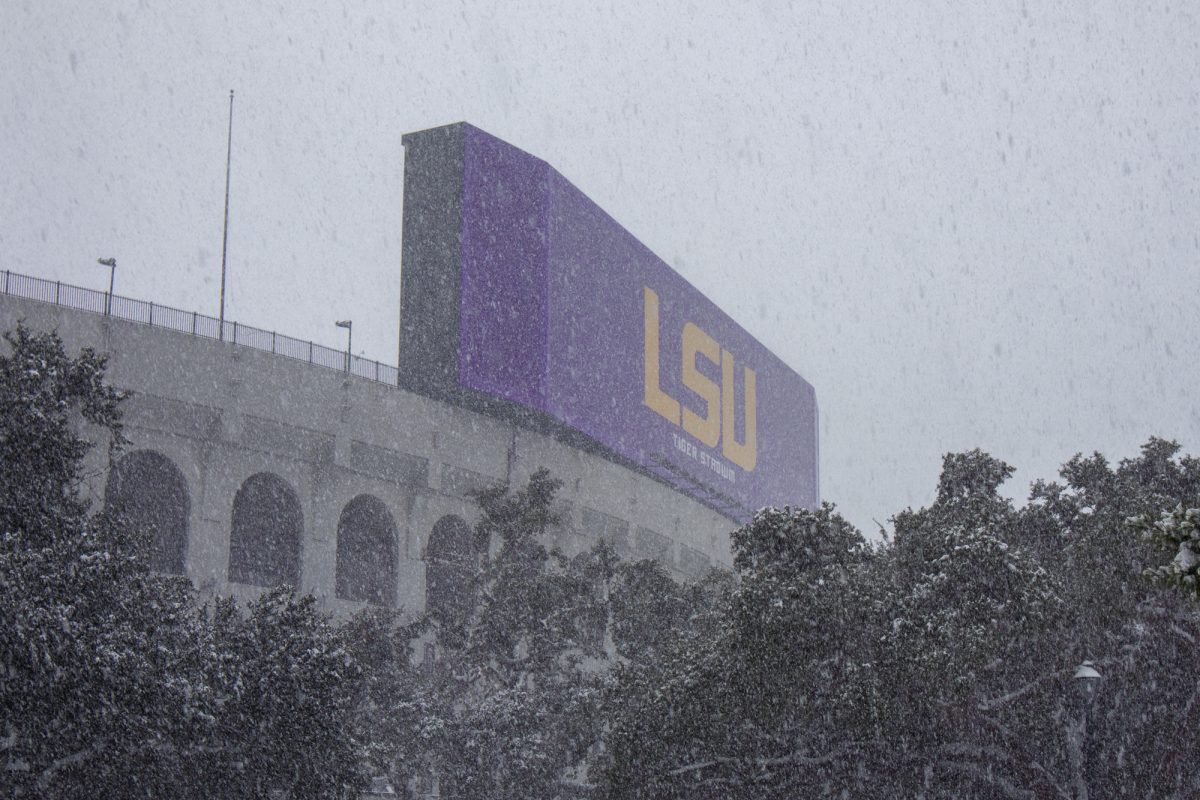The Faculty Senate met on Nov. 16 to hold Faculty Adjudication Committee elections and discuss the disposal of certain library books.
At the meeting, Dean of Libraries Stanley Wilder said that LSU Libraries is choosing to take certain books and print collections off its bookshelves. He said that LSU Libraries holds approximately 2 million volumes of books, most of which haven’t been touched or read.
Wilder said that LSU Libraries is planning to place most books and print collections in a robotic retrieval system in a storage facility close to campus.
Wilder said that while most of the books taken out of LSU Libraries will be stored in a building close to campus, some will be disposed of.
While the notion of throwing items away is negative, Wilder said that LSU Libraries is willing to set up a process that involves anything other than throwing books away, but the process is difficult.
“It’s extremely difficult to make a sustainable advantageous way to dispose of books,” Wilder said. “We can’t even recycle print books anymore.”
Wilder said that LSU Libraries previously donated old journal volumes to firms that would recycle them, but firms stopped receiving donations.
He said the faculty’s feedback will be helpful as to which books and print collections have value to the college departments and should not be fully disposed of.
“I have watched many universities do this process,” Wilder said. “Sometimes it’s done badly and sometimes it’s done well. When it’s done well, it’s done with a spirit of transparency between library and faculty as to what is valued within print collections.”
Wilder said that the disposal of books and print collections will open up space within the library. He said that the use of technology to access books and print collections will be more effective.
For an example of how technology effectively stores items, Wilder said that around 300,000 journal titles that take up enormous amounts of space are electronically accessible. He said that those journal titles need to be thrown away.
Regarding music collections, Wilder said that LSU Libraries will not be disposing of them.
Wilder said LSU Libraries has a planning project for a new library, which he said will need all faculty input.
He said that the planning project started on Sept. 5 and will end on March 1. The project’s focus includes what kinds of collections will be in an internet browsable format.
He also said that the new library will not be able to hold one hundred percent of books in a bookshelf browsable format.
Collection Analysis Librarian Michael Russo explained the usage of an ORCiD website, Open Researcher and Contributor IDentifier, that increases faculty productivity.
According to Russo, Open Research and Contributor IDentifier is a unique number that attaches an individual to their research. He said that the unique number will dismiss confusion between two individuals’ research who have a similar name.
“You will be distinguished from every other researcher with the same name, same research, and same institution as you,” Russo said. “Nobody else will have the same number as you.”
Russo said that an Open Research and Contributor IDentifier will properly credit an individual to their work. It will also provide LSU recognition for work produced by faculty.
The time saved attributing research, and manual work is what Russo said is the most appealing aspect of an Open Research and Contributor IDentifier. He said that the identifier can link to other research platforms, which will automatically credit in the Open Research and Contributor IDentifier.
Faculty Adjudication Committee elections
Three elections for the Faculty Adjudication Committee were held at the meeting. According to the Faculty Senate website, the committee serves to “hear all complaints of faculty members relating to outcomes of salary, promotion, non-reappointment, and tenure decisions believed to be unfair or due to inappropriately applied procedures [and] allegations of other unfair treatment.”
The committee consists of nine tenured faculty members who are elected based on senator votes to serve three-year terms. Currently, the committee only has eight members due to not receiving a response from one of the elected faculty members.
“The 2023 cohort, we attempted to reach out to someone – they declined. At this point, we thought that it didn’t make sense to continue that process given how hard it is to find faculty, to find someone who would serve out the remaining four months of that term…so we will hold another round of elections in April for the 2026 cohort,” Faculty Senate Vice President and political science professor Daniel Tirone said. “We decided that it would be best to proceed with the committee with eight out of nine positions filled.”
Current committee members include Kelly Blessinger, the head of Access Services at the LSU Libraries, and Meredith Gaglio, an architecture professor in the 2023 cohort. Veterinary medicine professor Fabio Del Piero was the only member of the 2024 cohort prior to the meeting.
The first election held was to fill the vacancies for two members who rotate off in 2024, and the second election was to fill the vacancy for one of the three members who rotate off in 2025.
Music professor Blake Howe and sociology professor Edward Shihadeh were announced as confirmed candidates for the 2024 cohort. The floor was open to new nominations, but after none were made, Howe and Shihadeh were elected by acclamation.
The two already confirmed candidates for the 2025 cohort were biological sciences professor Dominique Homberger and accounting professor Joseph Legoria. Music professor Robert Peck was elected in the spring but declined to serve, leaving one vacancy.
Chemical engineering professor Kerry Dooley self-nominated himself and was elected by acclamation.
Following the elections, an audience member suggested to Tirone passing a motion to have an election for the 2023 cohort.
“I think you should ask if there’s anybody on the floor right now who’d like to do the 2023. You basically, you’ve reached out but somebody didn’t want to self-nominate. I think that should not be limited, you should give people the chance to self-nominate,” the audience member said.
The motion to hold an election was passed, and nutrition and food sciences professor Joan King self-nominated and was elected by acclamation.
The next Faculty Senate meeting will be held Dec. 1, in the Dalton Woods Auditorium in the Coast and Environment Building.







